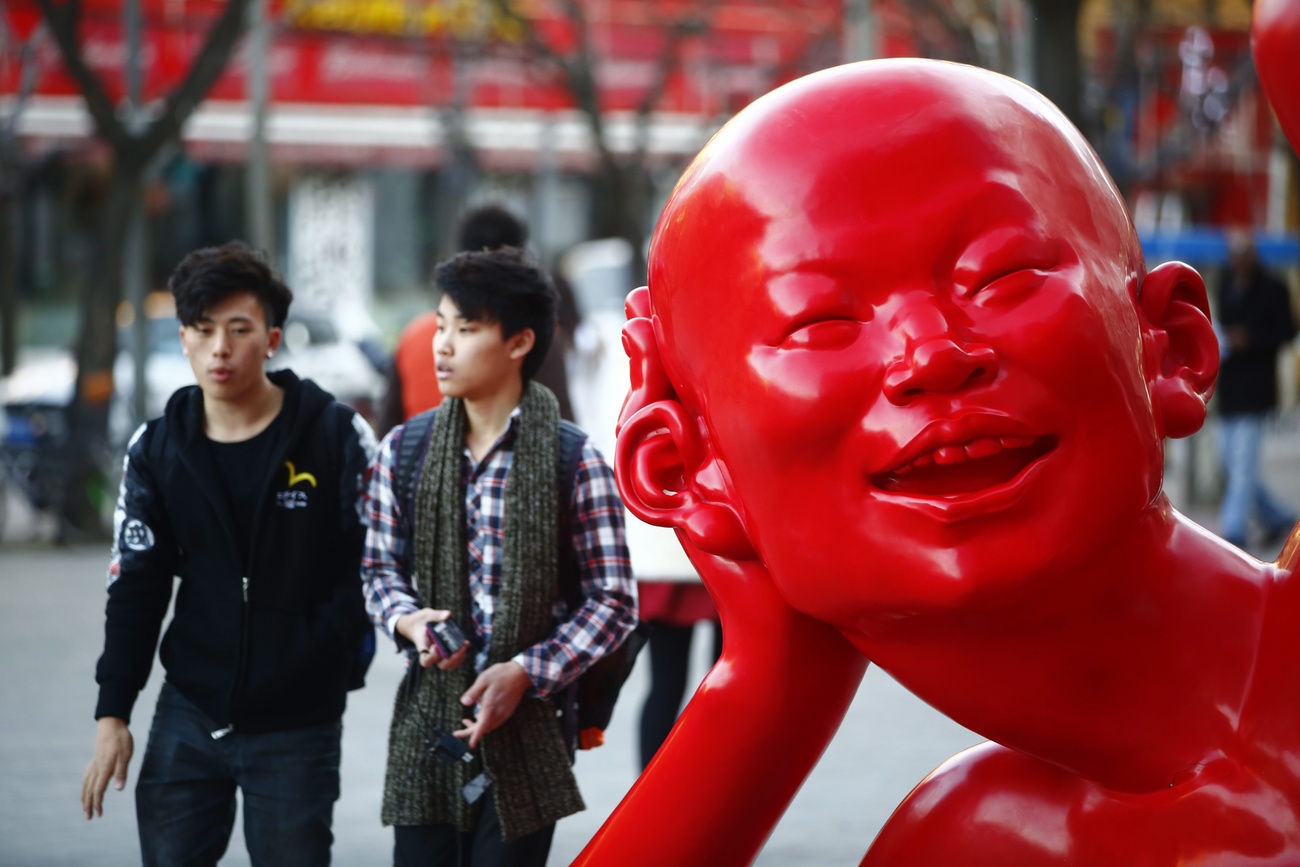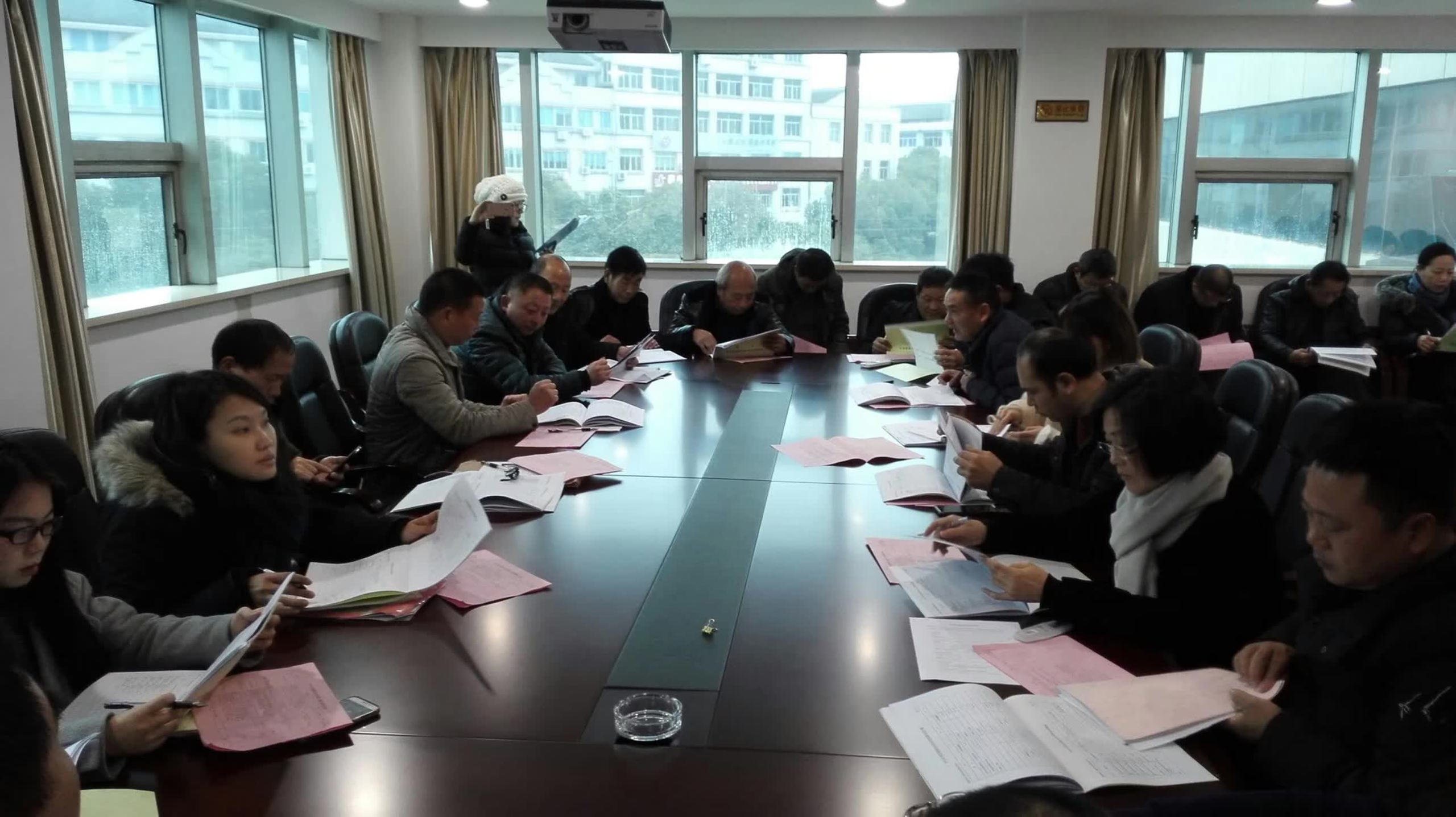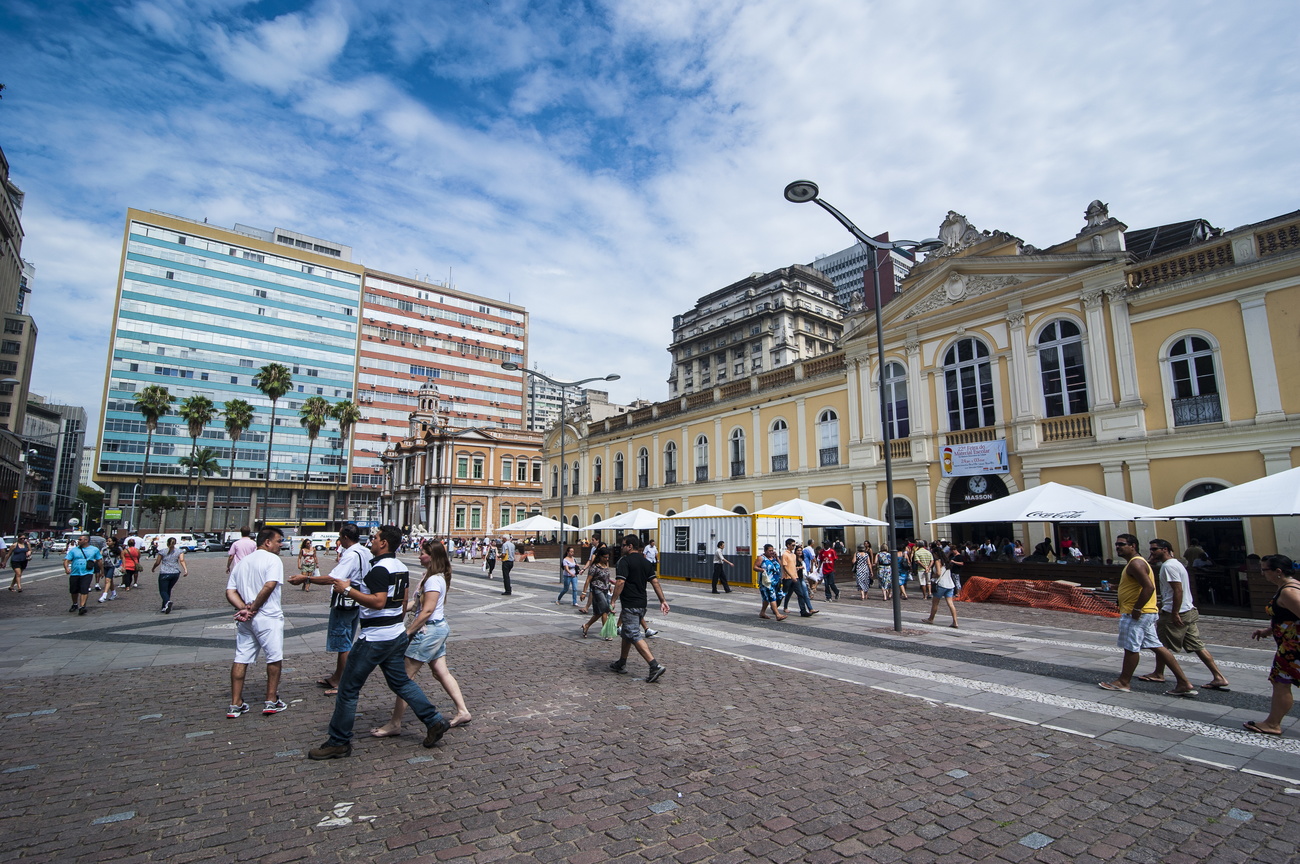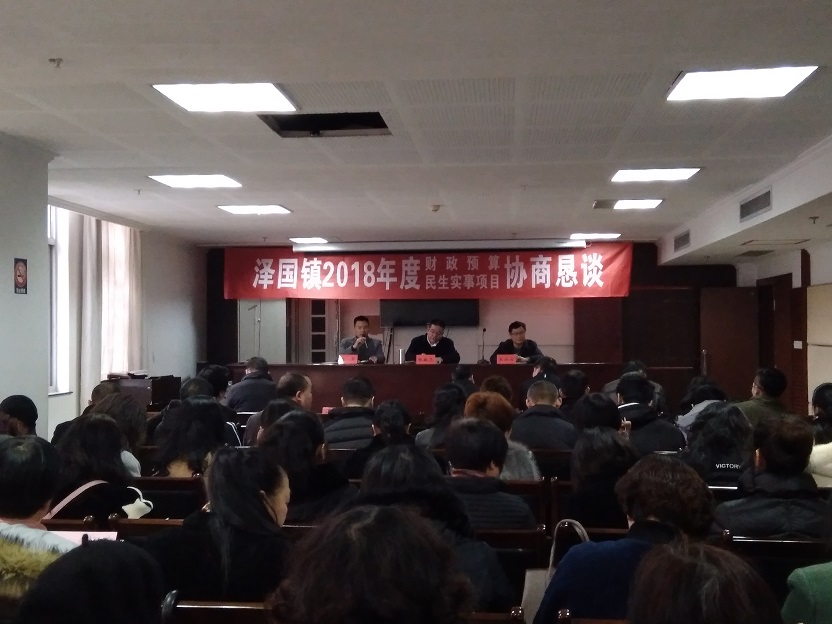
How democracy features in local Chinese politics

In China, citizens have the opportunity to participate in decision-making at the local level – though not out of any overarching democratic conviction. Researcher Su Yun Woo is studying the phenomenon at the University of Zurich.
SWI swissinfo.ch: In your work, you look at examples of local democracy in China. What exactly do democratic projects look like in an authoritarian state?
Su Yun Woo: China is considered to have an authoritarian system, but it has experimented with a range of participatory processes at the local level. In my research, I compared two examples of participatory budgeting, one in the southwestern city of Chengdu and the other in the eastern province of Wenling.

SWI: How do these participatory budgeting processes work?
S.Y.W.: The authorities invite the local population to get involved in decision-making on a part of the budget. A group of citizens will come together to form a panel to discuss how to spend money on a project that serves the community – for instance, a library or a communal garden. Wenling’s participatory budget is well known, whereas the example of Chengdu has been less well studied.
In Wenling, citizens are selected through a lottery system. In Chengdu, the participants are volunteers. This explains why mainly older people took part there, since they have more time. In Wenling, random selection works as the participants get paid – just as they do in Switzerland for projects of this kind. They receive the equivalent of CHF7 ($7) and a free lunch for taking part. In Wenling, participatory processes are now an integral part of local budget policy-making.

SWI: So the participants do not have to be Communist Party members?
S.Y.W.: No, they are ordinary citizens. There is no denying, however, that there can be official interference in participatory projects. I was told about some party officials who were supposed to go door to door and ask people their opinions, but instead they just filled out the forms themselves.
SWI: How would you describe the discussion culture during participatory budget debates?
S.Y.W.: Some participants are very vocal in expressing their opinions, while others stay quiet and prefer to take a back seat.
SWI: This sounds rather like participatory budgeting elsewhere.
S.Y.W.: Yes, the process is similar to that found outside China. If we reflect on the role of participation in democratic and authoritarian systems, I think we must conclude that it is always about good governance. This may be surprising, but even authoritarian states have to be concerned about providing good governance.

More
How participatory budgeting gives citizens a say in financial matters
SWI: What does good governance mean for China?
S.Y.W.: For the government, good governance means being responsive to the needs of the people. The resilience and survival of the one-party state can be attributed to its flexibility and its ability to adapt.
Local budget-making is an interesting field for participation, as it involves the allocation of resources. So instead of guessing what people might want, the authorities involve the citizens in making decisions, which can help prevent grievances later on.

This said, the opportunities for participation in China are only selectively permitted and mainly occur at the local level. They involve less sensitive topics. Citizen participation in highly political issues, such as human rights, is out of the question in China. Participatory processes are managed and controlled.
In democracies, participation in decision-making can be either top-down or bottom-up. In China, this is only partially the case. Social organisations, which depend on the state to varying degrees, also play a major role in Chengdu.
SWI: How do participatory projects in China differ from those in democratic states?
S.Y.W.: Participation in China takes place in the context of a single-party state. The authorities decide whether to allow participatory projects. They do so to pre-empt potential dissatisfaction and increase acceptance for their decisions. If anything goes wrong, the party can then say, “This is what you wanted”. Why should an authoritarian system care about participation? Because dealing with possible instability has a substantial political cost.
Stability is a priority for the Chinese government. But again, these participatory projects are limited to the local level.

SWI: What prompted you to do research on local democratic elements in China?
S.Y.W.: When I had to choose my PhD project in 2015, the concept of deliberative democracy was getting a lot of attention. I found it fascinating that it was even being applied in China – so I decided to focus on Chinese politics.
SWI: Citizens’ panels and deliberative democracy in general seem to be a hype.
S.Y.W.: They are. The many discussions around democratic deficits in existing democracies and ways to reduce the gap between elected and ordinary people have made deliberative democracy trendy again. Remarkably, as I said, the concept also gained popularity in China. The first projects started in 2005 in Wenling and in 2008 in Chengdu.
SWI: You recently took part in a panel discussion in Geneva with an expert on political participation in Venezuela. Does participation always take a similar form in authoritarian states?
S.Y.W.: Authoritarian countries allow participation for similar reasons, but each authoritarian system then follows its own path. So some hybrid authoritarian systems – for example, Singapore, where I come from – tolerate the presence of opposition parties.
I reflect a lot on the binary perspective of autocracy and democracy, and feel that this is not a constructive way to study China. It is important to strive for a more balanced perspective – because China is so complicated and big, with contradictory developments.
In authoritarian systems, participatory projects follow an instrumental logic. This also exists in democratic systems – but there the goal is to revitalise and deepen democracy. In authoritarian systems, such projects are used to strengthen the legitimacy of the ruling power.
SWI: So can these elements in China really be called ‘democratic’?
S.Y.W.: For the Chinese they definitely can. But this would upset many people in the West, as they have a certain understanding of what democratic participation should be, which is typically elections. But if we think of democratic participation as seeking input from people and being responsive and also accountable, then I think some of these elements are present in China. They are not consistently implemented and are not present across the country, but I have seen hints of them.

SWI: Have the participatory projects you studied had an impact?
S.Y.W.: Yes, they have. When I was there, I could sense that the organisers were very genuine and invested. Unfortunately, I have not been able to go to China for the last three years – so although I know that Wenling is continuing with its participatory budget, the overall assessment of participatory processes is rather unclear to me.
Because of the pandemic, it is difficult to travel to China at the moment, and I’m relying on my colleagues in the country. This is not the same as personal interaction with people on the ground. I know there is a lot of negative news about the top echelons of political power, but as a qualitative researcher who has spent some time studying the local level, I am still rather optimistic.
SWI: Are there really grounds for optimism?
S.Y.W.: Although the situation might not look too positive right now, I believe in the resilience and agency of certain groups of people in China and even the general public. Some of the social organisations and societal players I know are still keen to continue supporting the implementation of participatory processes in China. Their determination gives me some hope, although I am not naïve and I know that their ability to manoeuvre will become even more challenging for them.
Adapted by Julia Bassam/gw

In compliance with the JTI standards
More: SWI swissinfo.ch certified by the Journalism Trust Initiative































You can find an overview of ongoing debates with our journalists here . Please join us!
If you want to start a conversation about a topic raised in this article or want to report factual errors, email us at english@swissinfo.ch.